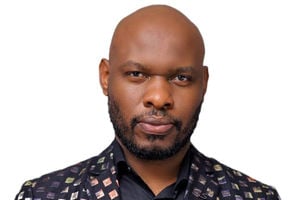The double-edged sword of social media

Author: Moses Khisa. PHOTO/FILE
What you need to know:
- Moses Khisa says: Now, I must confess I have never joined WhatsApp, a confession that shocks many and has led some people to distaste me!
There have been many ground-breaking and revolutionary inventions in human history, but arguably none compares to the Internet. The sheer transformation and disruption wrought by the Internet is simply staggering, sometimes incomprehensible.
Consider this. Only one or two generations ago, before the Internet was available and used in Uganda, it took perhaps at least two weeks, if not more, to deliver a written communication from any location in North America to Kampala. It now takes seconds.
Until very recently, even with the Internet widely available, the only way a group of people could have a joint and live (also lively) discussion was if they met physically, in person. Today, there are all sorts of platforms and options to meet virtually, live and as good as physical-in-person even when the people meeting are tens of thousand miles apart. This is truly extraordinary.
What is more, I live and work in Raleigh, North Carolina, USA. I have family in Bubulo, Manafwa District, Uganda. At the end of the month, I have to send money to my mother. I do so anytime, including in the dead of the night with the aid of my phone.
In the pre-Internet era, I would probably have taken weeks to deliver a very small amount of money to my mother. Now I do it in an instant. Cheap, convenient and simple.
By far the most consequential force of our time, powered by the Internet, is social media. Social media is as revolutionary, disruptive, transformative and destructive, all folded in one, as one can imagine.
If there is anything whose bounds are truly unlimited in our times, it is social media. From powering and promoting small businesses to connecting long lost friends and aiding community social causes, different social media platforms make possible what would have been undoubtedly impossible yesterday.
Keen readers of this column may know that I have previously bemoaned the rattle of social media, its ugly side and the extremes it aids, which is not to gainsay its absolutely powerful and invaluable contribution to humanity.
The fact that I am returning to this subject simply underlines the magnitude of the problem, at least as I see it. Everything always has two sides, the beautiful and ugly, the productive and destructive, the progressive and regressive, the desirable and undesirable. The challenge is to figure out how best to take advantage of the good side and mitigate the terrible side.
There is now unlimited information available through the World Wide Web. One can take days and weeks reading material on the Internet, a lot of it useful and compelling. Free, to boot. Yet, the same web, on one hand a treasure trove and a source of inexhaustible news and information, is at the same time a haven of grievous misinformation and dangerous agendas.
Even as it informs and educates, the Internet and especially social media does a great deal of misinforming, misleading and invariably creating as much ignorance even as it fosters informed communities.
For a poor country like ours, unlike the so-called developed West, we need to be thoughtful and deliberate about the positive uses but also aware of the destructive roles of social media. It means we have to be conscious of the insidious side of what otherwise looks to be a great and resourceful platform like WhatsApp.
Now, I must confess I have never joined WhatsApp, a confession that shocks many and has led some people to distaste me!
There is a somewhat iconoclastic streak to my personality, so when a growing number of Ugandans so loudly questioned how it was that I could live without WhatsApp, it spurred me to actually try living without it. It’s now almost a decade and I still do not use WhatsApp.
Now, from what I hear, WhatsApp serves many great ends and has become such a powerful positive influence on people’s everyday lives, but is simultaneously the place where toxic, mendacious and misleading material flourishes, unfettered.
It’s become difficult to choose between genuine and counterfeit, credible and fake. Sadly, even people who one would think are sophisticated and discerning enough are the ones who uncritically forward or repost evidently questionable stuff.
We can all do well to heed Antonio Gramsci’s advice: ‘optimism of the will and pessimism of the intellect’.
I like to impress upon my students to be questioning, to question me their teacher, to assume that everything they hear and read is open to debate and that there is nothing that should be taken for gospel truth. This is how knowledge advances and societies transform.




